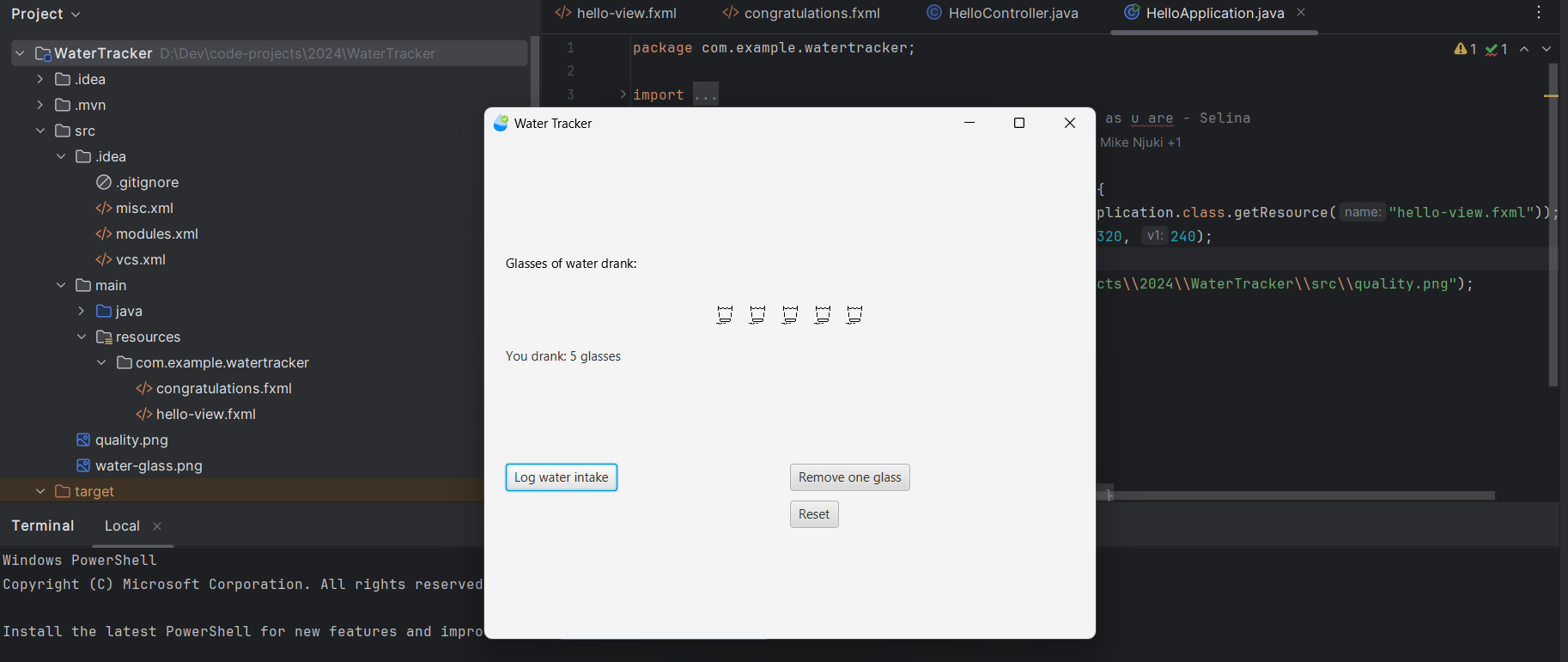Second Hackathon: Into the Deep End
Next came the JavaFX nightmare. For some inexplicable reason, it refused to work on my teammate’s Mac. I tried ...

Two is better than one. Whatever I said about the first hackathon, best believe this one felt like I was thrown into the deep end, clinging to every ounce of mental fortitude just to stay afloat.
Picture this: I had barely started wrapping my head around Java, the complex, verbose beast that it is, when suddenly, I found myself at a hackathon expected to use Java. Challenge accepted. Over time, I’ve realized the best way to get good at programming is to dive into projects, no matter how unprepared I feel.
The day started much like the first hackathon, but this time, we were on a level playing field. No prior exercises to complete, and no hints about what was coming everything was revealed just minutes before the event began. As it should be. After quickly pairing up, my teammate and I launched into a heated debate over what program to build. We finally settled on a water intake tracking app. Simple enough, right? A few methods, a couple of classes, and voilà, done in an hour or two. Or so I thought.
Spoiler alert: I was wrong.
With my JavaScript experience, I had a clear vision of what we needed and how to implement it, just not in Java. By default, I found myself in the “tech lead” seat, assigning tasks to my teammates. But no sooner had we started setting up the project than we hit a wall. Or several, if we are being precise.
First, my school Git account wasn’t set up with the correct SSH key. Why couldn’t I push the project template? Five minutes of frustration later, I figured it out and created an access token. Problem solved. Push, pull, off we go. Smooth sailing from here, right? Wrong.
Next came the JavaFX nightmare. For some inexplicable reason, it refused to work on my teammate’s Mac. I tried everything I could think of, but every tick of the clock doubled my anxiety. Eventually, I referred them to the professor for help.
While they worked on that, I decided to tackle the logic first. From experience, I know that nailing the logic early makes the design process far more intuitive. Googling my way through errors and hurdles, I managed to make some progress. Then we got assigned a third teammate. Cue the sigh of relief.
She wasn’t used to Java either, but was a fast learner. I promptly offloaded a few tasks, gave her a crash course in what to do if she hit a snag, and off we went. Fueled by coffee, the rhythmic clacking of keyboards, more coffee, Git pushes and pulls, and a few heated battles with merge conflicts, we somehow finished in under five hours.

As the dark winter night settled over Germany, we gathered for the keynote—my favorite part of hackathons. The day's speaker was Karina Burunchina , a design automation engineer at Accenture. She shared invaluable insights about working as a software developer and how writing code in academia contrasts with the realities of the industry. While she covered a lot, what stood out most to me was her honesty about the challenges developers face, even with years of experience. Hearing someone seasoned admit they still get stuck sometimes, and that it’s okay was incredibly reassuring. It’s a confidence boost to realize that those moments of staring at your code, puzzled by errors, and doubting your abilities, happen to everyone. It’s a reminder that struggling doesn’t mean you’re not good at what you do.
Looking back, I was amazed at what we accomplished. It had felt impossible at first, but I suspect our professor knew what she was doing by throwing us into the deep end without life jackets. She believed in our abilities, or at least, the admissions office did when they accepted us into the course.
As the day went on, I helped other groups with Git issues, most of which I’d already encountered earlier that day (or in some prior projects). In those brief moments, I felt genuinely useful. After a string of tech job rejections and constant self-doubt, being able to solve problems and explain solutions in a way that made sense (I hope) was a confidence boost I didn’t know I needed.
For the first time, all the early mornings, skipped meals, and long nights spent learning felt like they were counting toward something.
But only time will tell.
Got thoughts or similar experiences? Drop a comment below, I’d love to hear from you!
